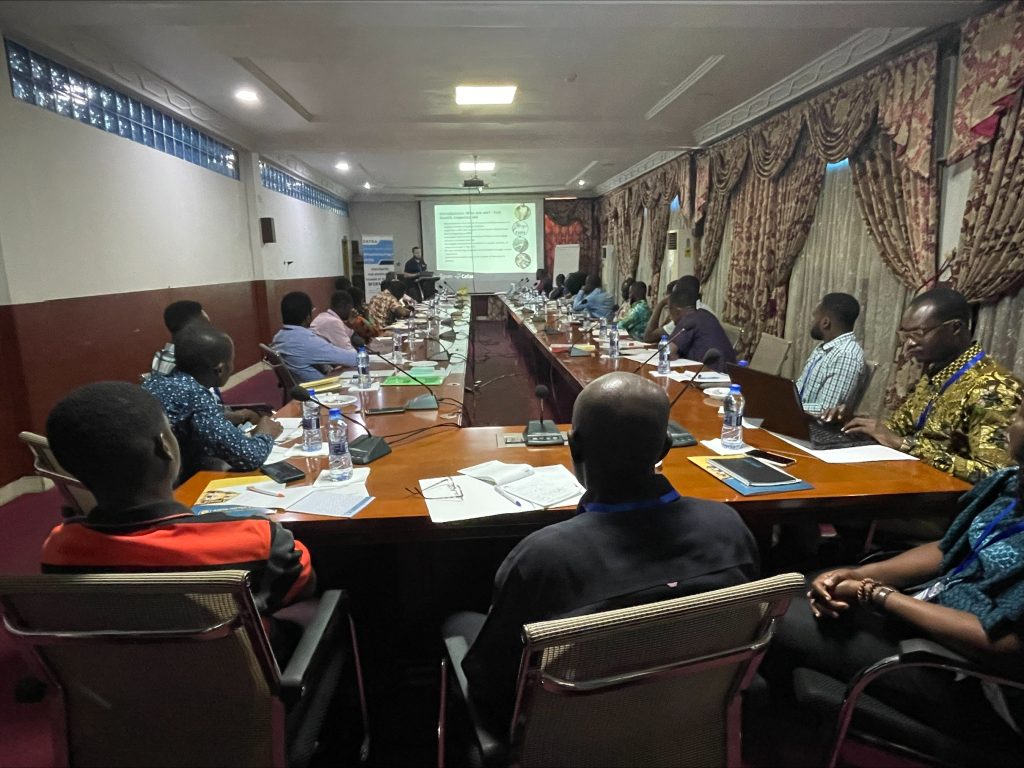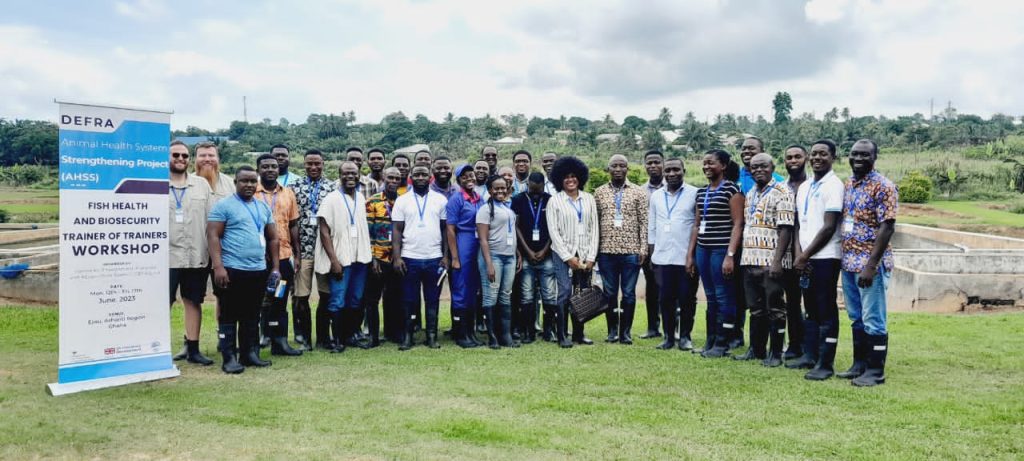By Patience Gbeze
Kona-Odumase (A)R), June 23, GNA – A group of selected officers of the Fisheries Commission of Ghana have been trained on fish health and biosecurity in Kona-Odumase in the Ashanti region.
The training was spearheaded by Fish Health Inspectors from the Centre for Environment, Fisheries and Aquaculture Science (Cefas), an agency of the UK Department for Environment, Food and Rural Affairs (DEFRA).
It was sponsored by the Animal Health System Strengthening Project (AHSS), a UK overseas development assistance project managed by Defra.
The manager of the Aquatic Animal Health Unit of the Fisheries Commission, Mary Nkansa noted the training had come at an opportune time as Ghana race against time to ensure fish produced in Ghana are clinically healthy.
According to her, it became imperative for the Unit to train and broaden the knowledge base of the Fisheries Officers to be better positioned to deliver high standard fish health services.

She indicated the officers had acquired expertise, fostered collaboration, and enhanced their capabilities in fish health and biosecurity.
This marks a significant milestone in Ghana’s quest to strengthen its aquatic health system to better protect from, detect, and respond to known and emerging aquatic diseases.
Dr William Kuma Adu, the National Animal Health System Strengthening Lead, said: “By actively participating in the first training of such a topic in the sub-saharan African region, and leveraging international partnerships, Ghana is demonstrating its commitment to strengthening their aquatic animal health system.”
On his part, the AHSS Senior Animal Health Project officer, Mr Victus Sabutey, indicated the project is expected to further support the trained officers to develop agreed biosecurity management plans on identified farms in Ghana.
The trained officers include Ghana’s only four fishery veterinarians and 27 fisheries officers who double as extension officers but have never benefitted from any fish health and biosecurity training.
According to the trainees, they would now be able promote fish disease prevention and management strategies as part of the extension services for fish farmers and promote the sustainable development of aquaculture.

As part of the week-long practically oriented activities, Cefas Fish Health Inspectors, engaged their Ghanaian counterparts in knowledge and skills transfer activities.
The officers Engaged in a fictional fish mortality and subsequent disease investigation scenario at the Ghana Fisheries Commission’s Pilot Aquaculture Centre at Kona-Odumase in the Ashanti region.
Aquaculture best practice biosecurity measures were discussed and identified risk mitigation measures on pond and cage sites were collected and reviewed.
Issues of poor water quality, fish stocking, fish husbandry, discussions on disinfections methods (both personal and for the fish farm site), antimicrobial use and resistance (AMR), and standardised fisheries documents and templates were introduced to the officers.
The project has been strategically designed to provide official development assistance to strengthen animal health systems in selected sub-Saharan African Countries including Ghana, based on the highest international standards of practice.
Fish health was included in the scope of the project due to the recent increasing incidence of aquatic animal health challenges that threaten sustainable aquaculture production in Ghana.
The AHSS project engaged with the Aquatic Animal Health Unit of the Fisheries Commission for this significant engagement due to their shared urgency in developing robust surveillance system and strengthening their existing animal health system to counter the emerging fish diseases on the African continent.
As an outcome of this training, the officers are now well equipped to work effectively with Ghana’s four fisheries veterinarians in collecting field samples to investigate suspected fish diseases.
Additional officers are also expected to be trained as part of the projects ongoing collaboration with the Fish Health Unit of the Fisheries Commission of Ghana.
GNA